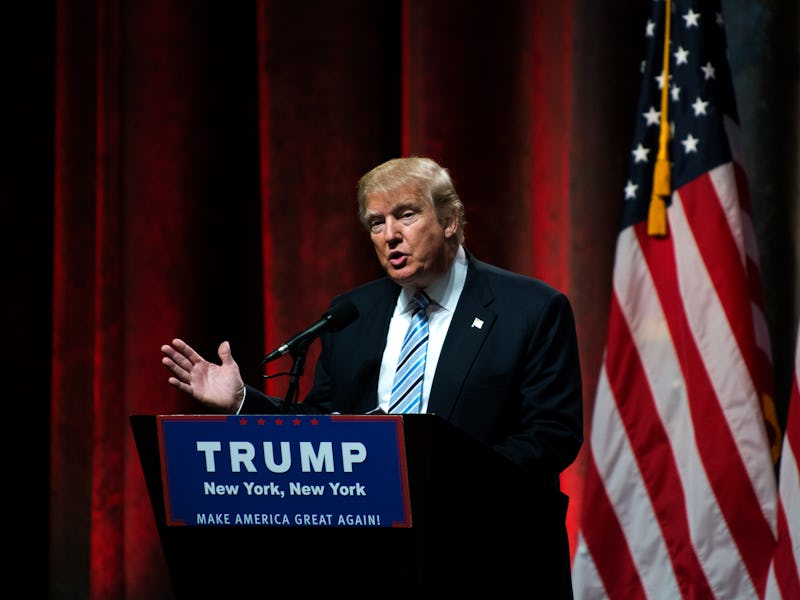Trump's Call for Iran to Unblock Instagram Has One Glaring Hypocrisy
Banning Instagram is bad but so is banning private citizens as president.

The Trump administration on Tuesday called for the government of Iran to unblock social media apps, including Instagram.
The Associated Press broke the news on Twitter, reporting this: “Trump administration calls on Iran to unblock Instagram, other social media amid protests.”
The calls from the White House come as protests in Iran became violent overnight Sunday; more than ten people have died. Protests over the country’s economic crisis have lasted five days in cities across the country, and food prices have gone up.
On Sunday, authorities there blocked Instagram and the messaging app Telegram.
Not allowing people to engage with each other on social media limits freedom of expression, but, as has been the case with many pronouncements from Trump, there’s at least one glaring hypocrisy about the declaration. Through his personal account, @realdonaldtrump, Trump regularly blocks people on Twitter — from journalists to activist groups to private citizens — from seeing what he, the president, puts online. To put it plainly, it’s his own personal form of censorship.
As news from the AP broke, New York Times journalist Maggie Haberman, a leading journalist covering Trump, pointed out this fallacy in plain language:
In June, Wired published a list of everyone Trump had blocked on Twitter, a rundown that included the progressive non-profit VoteVets, novelist Stephen King, and journalist Lauren Wolfe, among others, with guesses at why. In September, New York magazine published an updated, exhaustive list. It includes model Chrissy Teigen, for her comment: “Lolllllll no one likes you.” After the president blocked her, she remarked, “After 9 years of hating Donald J Trump, telling him ‘lol no one likes you’ was the straw.” It’s easy to laugh at a very angry Trump blocking the comedian/model, but troubling to think he’d do it in the first place.
“Iranian authorities are blocking access to Telegram for the majority of Iranians after our public refusal to shut down https://t.me/sedaiemardom and other peacefully protesting channels,” commented Pavel Durov, the CEO of Telegram, on Sunday.
Later, Durov wrote in this blog post that Telegram did suspend a messaging channel after users in it called for the throwing of Molotov cocktails: “Yesterday we had to suspend @amadnews, a public channel that started calling its subscribers to use Molotov cocktails and firearms against police. The admins of the channel reached out to us after the fact, apologizing for breaking our rules and pledging not to promote violence in the future. As a result, they have been able to reassemble most of their subscribers (800,000) in a new peaceful channel, which we welcomed.”
Iran has increased internet censorship in the country steadily over the past few years. You can check to see if a website is blocked in Iran using this website.
Facebook-owned Instagram had not commented on the Iranian government’s ban as of Tuesday.